“We delayed building a stronger army or buying new weapons,” Saif Gaddafi explained to RT in July 2011, in the midst of the collapse of his nation, “because we thought ‘we will not have to fight again’; because the Europeans and the Americans are our friends now…”
He had been wrong about that of course, as had his father; and the sense of betrayal and shock on Saif’s part was palpable.
And now it is declared that it should be ‘death by firing squad’ for the man who was once thought to be Libya’s best hope for democracy and reform…
The death sentence handed to Saif Gaddafi by NATO’s Libyan militias is simply the latest symptom of the wonderful ‘democracy’ and ‘freedom’ our governments bombed into Libya in 2011; a country that, even four years later, still has *no government* and is characterised by numerous rival militias, terrorists, daily kidnappings and assassinations, and no state apparatus or infrastructure.
No one gets a ‘fair trial’ in the now lawless Libya; no one gets a fair anything, and a son of the late Muammar Gaddafi was certainly never going to be treated with any kindness.
Saif was found guilty of ‘crimes against humanity’ by the cowboy court of the ‘Libya Dawn’ militia in Tripoli, along with eight others, including the former security-chief Abdullah Senussi and the former Prime Minister, Al-Baghdadi al-Mahmoudi. They are now to die by firing squad, according to the militia court.
Like the Russian Romanovs a century ago, all trace of the Gaddafi family is in danger of being erased in a discernible policy of cleansing in a Libya no longer owned or run by Libyans.
One-time pro-footballer in Italy, Saadi Gaddafi, is reported to be in militia custody somewhere too, his status unknown, while the whereabouts of the late Muammar Gaddafi’s long-time wife Safia and his daughter Aisha Gaddafi remains unknown. Aside from Muammar Gaddafi himself, two of the former figurehead’s sons were already killed; the younger Seif or ‘Aruba’ by NATO bombing of his house, and Mo’tassim by having his throat slit by NATO’s militias on the same day his father was murdered in October 2011.
Incidentally, NATO – France, America, Britain and all – also killed three of Gaddafi’s infant grandchildren in that same bombing that had killed ‘Aruba’.
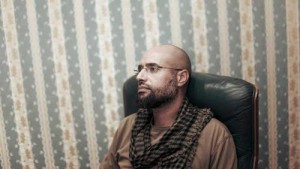
Neither Saif, nor any of these accused men, were afforded a real trial, of course. Which of course they couldn’t be, as the people prosecuting them are themselves criminals. What is clear is that this is an operation to (1) cleanse every trace of the old Libyan government from existence, and (2) finish wiping out the Gaddafi family and name so that remaining believers in the old Libya have no future figureheads to rally around.
In a ‘trial’ that took place in militia barracks and in which militia-men are said to have had guns pointed at the judges the entire time, Saif was afforded no legal advice or representation. He has also been kept, along with the others, in abject conditions for the last three-and-a-half years, has been subject to torture, and is missing fingers on his hand. The other prisoners have fared no better; former Prime Minister al-Mahmoudi has without doubt been severely tortured on multiple occasions and, according to his son, one of these torture techniques had been to drop him from a second-floor window of a building. Mahmoudi’s big ‘crime’ in 2011 had been to urge the initial violent ‘protesters’ in February to “voice their issues through existing channels, even if it is to call for the downfall of the government.”
Amnesty International, which itself disproved the allegations against the former Libyan government in 2011, has condemned this trial and verdict, stating that “this trial exposes the weakness of a criminal justice system which is hanging on by a thread in a war-torn country with no central authority.”
The ‘War Crimes’ accusation goes back in fact to the International Criminal Court‘s declaration in 2011 – and based on nothing more than media reports – that both Saif and his father had committed crimes against civilians during the 2011 crisis. This was, of course, concocted by the on-the-ground terrorists, by Britain, France and America, Al-Jazeera and Gulf-State news corporations, and adopted – without any investigation or fact-finding mission – by the ICC.
To this day, not a shred of evidence exists to convict Muammar Gaddafi, Saif Gaddafi or the former Libyan government of the crimes it was accused of. And Saif, for one thing, wasn’t a member of the military, nor did he have a government position, and he was therefore not in a position to issue any orders.
For the record, I myself have been compiling a definitive study of the 2011 Libyan ‘Civil War’ and its causes for the past year-and-a-half; it will be made available on this site as an e-book download very soon, so I will refrain from entering into a detailed exposition about the 2011 crisis here.
But didn’t anyone find it odd that right up until February 2011 Saif was viewed by the West as the modernising, reform-minded face of the Libyan establishment?
The 38-year-old, with an MBA from Vienna University and a PhD from the London School of Economics (LSE) and the manager of the Gaddafi International Charity and Development Foundation, was suddenly now wanted by the International Criminal Court for ‘crimes against humanity’.
It was a farce, bringing the International Criminal Court itself into great disrepute, as the ICC in 2011 had become simply an appendage of NATO and the dictatorial UN Security Council.
The idea that the people and forces guiding the 2011 ‘uprising’ were a ‘peaceful, pro-democracy movement’ was of course a fiction carefully constructed and maintained by our officials and the media. Many of those doing the ‘rebelling’ in 2011 weren’t looking for ‘democracy’ or liberal reforms, despite all the bullshit propaganda our governments and the mainstream media maintained to the outside world on their behalf; many of them were of course radical Islamists/Salafists looking to establish Sharia-based Islamic ’emirates’, and many others were simply corrupt politicians looking to further their own interests or the interests of foreign, corporate sponsors (along with CIA, MI6 and French and Qatari Intelligence) with whom they had been heavily colluding.
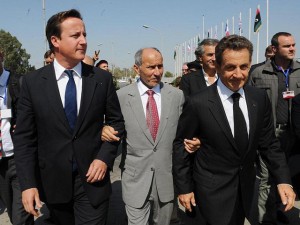
It is also a matter of fact that many of the leading figures in the 2011 anti-Gaddafi movement were not people living in Libya, but exiles who’d been living abroad for many years and had been colluding with Western officials and intelligence agencies during that time, some of them pro-Monarchists and some seeking lucrative personal profit from collusion with corporate interests.
The initial ‘Day of Rage’ in February 2011 that sparked off the entire ‘uprising’ wasn’t something organised by Libyans living in Libya, but had been organised from London, Washington and Paris.
And further to all of this (and much after the fact), the lead NTC official Mustafa Abdul Jalil (pictured above, walking arm-in-arm with his lovers/co-conspirators Cameron and Sarkozy) has even admitted that he knew at the time that Gaddafi *hadn’t* given anyone any order to fire on civilians in Benghazi, but that he had gone along with the lie for the sake of having Gaddafi toppled. Jalil, one of the key figures in the uprising at the political level, has ADMITTED IT – and none of the mainstream news organisations have bothered to report it, of course.
Further, The Washington Times a few months ago published audio tapes of conversations between US officials and Libyan officials in 2011, revealing that the US intelligence community had gathered no evidence of an “impending genocide” in Libya in 2011 and that Hilary Clinton was well aware of that all along.
If you listen to the audio, you hear Pentagon officials actually telling Libyan government officials, including Saif Gaddafi, that *they themselves* don’t even believe the information being propagated by Hilary Clinton and the State Department. This leak includes recorded audio of conversations between US Congressman Dennis Kucinich and Saif Gaddafi regarding the grounds for NATO intervention in Libya.
_____________________________
Saif al-Islam was seen for years as the liberal, progressive face of the Libyan establishment and as the figure who would help transition the country carefully towards full democracy and more liberal values.
Educated in the West, graduated in England, a guest of Buckingham Palace, a moderniser and a bridging-link between his father’s ideals and the ideals of liberal democracy, it is in fact difficult to think of anyone who was more perfectly-placed to guide Libya into a stable, successful transition.
He was never given the chance to do fulfill that potential; as once the government was under such ferocious, bloody assault in 2011, he could never abandon his father. But the case can certainly be convincingly made that Saif and not the Western backed opportunists of the NTC may have been the country’s best chance for progression and democracy; a gradual, organic process conducted over time instead of via armed, bloody chaos and NATO bombing.
Prior to 2011, Saif had spoken at length both inside Libya and abroad about how he wanted democracy in the country and wanted to introduce more and more liberal reforms into the society, but he had wisely and realistically maintained that this process would need to take place over a period of time.
The reforms going on in Gaddafi’s Libya (along with the reforms Gaddafi had been proposing right up to just before the bloodbath of 2011) implied a shift towards constitutional government. This coincided with that brief era in which Gaddafi and Libya were being ‘brought in from the cold’, as the media kept describing it; reestablishing relations with Western governments. This wasn’t just about business, although business was of course a central factor.
The Western-educated Saif Gaddafi was regarded as the chief architect of Libya’s ‘rehabilitation’ and the driving force behind this push for reconciliation and a new era.
In January 2011 (a month *before* the unrest began), Muammar Gaddafi and his son Saif al-Islam had also both announced that they were willing to hold elections and that Gaddafi would step aside if he lost.
How is it that in all the years of so-called ‘dictatorship’ (which Gaddafi mostly denied was a dictatorship), the so-called ‘pro-democracy movement’ of 2011 only decided to start an uprising once Gaddafi had already announced intentions for democratic elections?

Months later, once the ‘Civil War’ was raging, Saif renewed his calls for democratic elections and stated that the elections could be held within three months and transparency would be guaranteed through international observers. NATO and the rebels rejected the offer and NATO soon resumed their bombardment of Tripoli. And all of this being even after it was abundantly clear that the bulk of this ‘popular uprising’ was in fact constituted by heavily-armed Islamist terrorists.
In actual fact, Saif himself could’ve kept out of the 2011 conflict; he could’ve saved himself. But he chose to go back to Libya to help his father and the government try to defend the country from the Al-Qaeda/mercenary infiltration and European/American plot. Given his own liberal, pro-Western, highly Anglophile leanings, Saif might even have been treated favorably by Western political schemers had he chosen to stay out of it.
But, evidently, he had far too much honour for that and too much sense of duty to the country.
_______________________
I of course vividly remember Saif al-Islam’s various interviews during the beginnings of the 2011 crisis.
In July 2011, Saif had an interview with RT in which he utterly denied the ICC’s allegations that he or his father had ordered the killing of civilian protesters. He pointed out that he was not a member of the government or the military and therefore had no authority to give such orders. He also said that his father had made recorded calls to General Abdul Fatah Younis (who later defected to the rebel forces), in order to request the army *not use force* against protesters, to which he said Fatah Younis had responded that protesters were attacking a military site and the soldiers were merely acting in self-defense.
Asked by RT who did order the ‘brutal crackdown’, Saif replied: “Nobody ordered, nobody. The guards fired – that’s it. The guards were surprised by the attack and they started firing. They don’t need an order to defend themselves and to defend their barracks and their camps.”
He went on to say that, “the people who died at the beginning, 159 – most of the people died when they attacked a military site and this would happen anywhere in the world – in Russia, in America, in France, in Germany and Italy. If people in the street move towards a military site trying to steal ammunition or arms, the military will prevent that, and this is what happened in Benghazi.”
The sense of disappointment and betrayal in Saif’s demeanor through this interview is palpable, as he is by now fully aware of the extent to which the people in the West, in America, Britain and France, who he had thought were his friends, were now ruthlessly trying to destroy him, his family and his society. But there was something in particular that Saif said that still saddens me to this day; admitting that the Libyan government had been naive in their complacency, Saif told RT that Libya’s biggest mistake was they hadn’t bought new, better arms and weapons and didn’t build a bigger army.
Why? Because Gaddafi and Libya had been lured into a false sense of security and reconciliation by the Western Imperialist/Corporate powers. They were lured into thinking Libya had been accepted as a ‘friend’ of the West in a new era of peace, particularly post-9/11.
This put Libya precisely where America, NATO and the European powers wanted it: weak and defenseless.
“We delayed building a stronger army or buying new weapons,” Saif explained to RT, “because we thought ‘we will not have to fight again’; because the Europeans and the Americans are our friends now…”
The other fatal mistake had been releasing so many criminals and Islamists from prison in the hopes of ‘rehabilitation’ and ‘dialogue’; Gaddafi and the government had done so largely due to Saif’s influence. It was idealism, but it was naivety; and it cost them dearly, as most – probably all – of those released prisoners were certainly involved in the subsequent violent uprising. Unlike say the US, Israel or even Syria, Gaddafi’s approach to dealing with militants and extremists wasn’t solely based on military means; he chose to pursue dialogue. The Gaddafi Charity organisation engaged in dialogue with leaders of these groups, this being both those who’d been in prison in Libya or those returning from illegal activity in Afghanistan, Iraq or from Guantanamo Bay.
This dialogue, in part led by the forward-thinking Saif Gaddafi, resulted in leaders of the ‘Libyan Islamic Fighting Group’ and others to renounce violence once and for all. Following this, several hundred of these militants were released from Libyan prisons over several years, with the promise of having renounced violence and seeking to reform; the final hundred or so of these were released on 15th of February 2011, just two days before the uprising began. In fact, this policy of trying to ‘rehabilitate’ extremists and release them from prison was all part of Gaddafi’s desire to bring an end to the whole ‘brutal regime’ stigma and move Libya forward: it was the need to suppress exactly these kinds of extremist Salafist/Islamist individuals and groups that was one of the main reasons this harsh treatment of prisoners went on.
But Saif had believed that they could remove this extremist problem through rehabilitation and he believed that doing this would negate the need for harsh suppression in the future.
What happened in 2011, where many of these released prisoners and other extremist Islamists ran riot, goaded by Al-Qaeda and aided by NATO, Qatar and the Saudis, demonstrated *exactly why* that harsh suppression had been regarded as necessary for so many years.
It’s the irony of ironies.
And now, to finish it all off, Saif al-Islam receives a death sentence from the very beneficiaries of his liberal, forward-thinking inclinations. Like his father, Saif must now wish he hadn’t bothered with kindness or charity.
________________________________
Saif Gaddafi is quite obviously innocent. He is certainly not someone who committed or was involved in ‘crimes against humanity’. In fact, the ICC itself, along with our various governments, and crucially the corporate news networks, are all RESPONSIBLE for his situation and are the main reason why this false ‘war criminal’ accusation exists.
The media, along with our governments – particularly France, Britain and America – are entirely complicit in his ordeal, in the death of his father, and indeed in the deaths of the countless victims of the Libya catastrophe from 2011 to now.
Saif’s former girlfriend has even asked ‘Middle East Peace Envoy’ Tony Blair to try to campaign or intercede for the imprisoned son of the former Libyan leader; Blair has said absolutely nothing on the matter so far.
Not that Saif would be expecting any kindness or favors from Western fair-weather friends anymore; he was fully cleansed of that naivety four years ago, once he’d realised that the political and financial elites of France, Britain, America and the West had simply used him in those few years of ‘reconciliation’ in order to convince his father to drop his guard.
The biggest, most bitter irony of course is that Saif Gaddafi was probably Libya’s best hope of democracy, reform and progression.
Instead, ‘the golden prince’ hailed as ‘the reformer’ has been left to be tortured and sentenced by a court run by criminals put there by the very Western ‘democracies’ whose very ideals he had hoped to emulate.
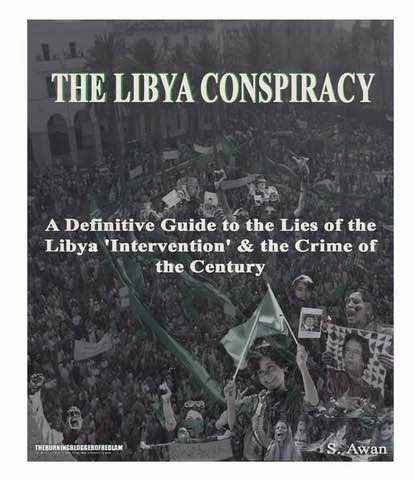

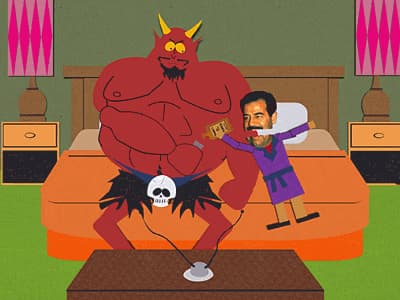

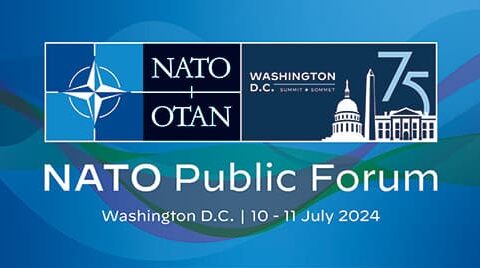
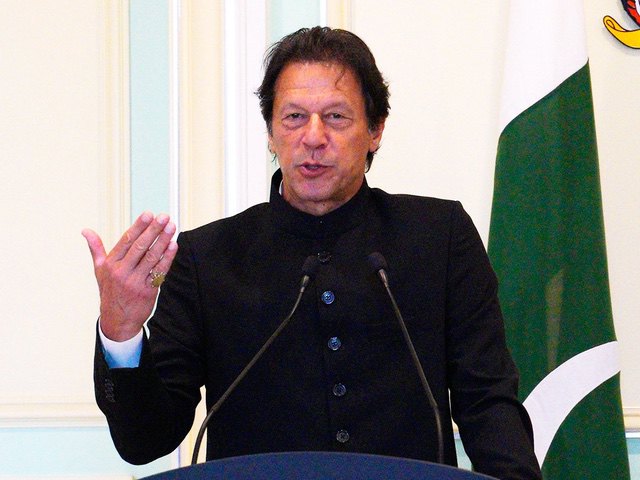
Hope you like this poem I wrote about for Saif. http://christopher-black.com/2015/07/30/see-the-green-flag-flying/
Christopher Black
I do. Thanks for sharing, Christopher.
Reblogged this on LIBYA AGAINST SUPER POWER MEDIA.